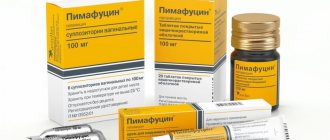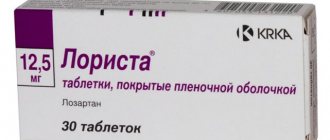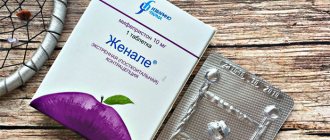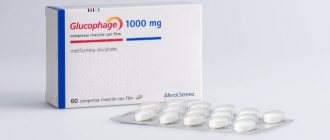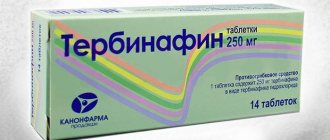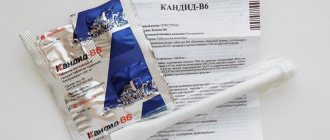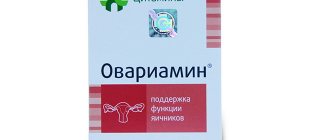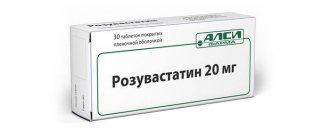Pharmacodynamics and pharmacokinetics
The main component of the medicine is acetylsalicylic acid (some mistakenly call it acetylic acid). The pharmaceutical drug belongs to anti-inflammatory medications.
It is useful to know that Aspirin and acetylsalicylic acid are the same thing.
C9H8O4 is the chemical formula of Aspirin.
Taking Aspirin in a dosage of 300 mg to 1 mg helps eliminate joint and muscle pain. In addition, a similar dose of the drug helps to improve well-being during colds and flu, and helps with fever.
Acetylsalicylic acid is suitable for the treatment of acute and chronic inflammatory diseases.
It is advisable to take aspirin for:
- Bekhterov's diseases
- Osteoarthritis
- rheumatoid arthritis
For the above diseases, doctors prescribe higher doses of the drug than when fighting colds and high body temperature. Based on the specific course of the disease, patients are prescribed 4-8 g of medication per day.
Aspirin is also useful to take in the presence of many vascular diseases. In such cases, doctors recommend taking from 75 g to 300 mg of the substance daily (depending on the nature and danger of the disease).
Pharmacokinetics
After consuming the medicine, the active substance is rapidly and completely absorbed from the stomach. During and after absorption, it is converted to salicylic acid (the main active metabolite).
Decomposition products are primarily excreted through the kidneys.
Aspirin-C effervescent tablets No. 10
Aspirin-C effervescent tablets No. 10
Aspirin-S Buy Aspirin-S in pharmacies
DOSAGE FORMS effervescent tablets
MANUFACTURERS Bayer AG (Germany) Bayer Bitterfeld GmbH (Germany)
GROUP Combined products containing acetylsalicylic acid
COMPOSITION Acetylsalicylic acid + Ascorbic acid.
INTERNATIONAL NON-PROPENTED NAME Acetylsalicylic acid + Ascorbic acid
SYNONYMS Fortalgin C
PHARMACOLOGICAL ACTION A combined drug, the effect of which is determined by the components included in its composition. Acetylsalicylic acid has a strong analgesic, antipyretic and anti-inflammatory effect. Ascorbic acid is involved in the regulation of redox processes, carbohydrate metabolism, blood clotting, tissue regeneration, in the synthesis of steroid hormones, and satisfies the body's increased needs for vitamin C in diseases accompanied by fever.
INDICATIONS FOR USE Feverish syndrome in infectious and inflammatory diseases, pain syndrome of various origins in adults, migraine, toothache, neuralgia, myalgia, arthralgia, algodismenorrhea.
CONTRAINDICATIONS Hypersensitivity, erosive and ulcerative lesions of the gastrointestinal tract, gastrointestinal bleeding, aspirin-induced asthma, hemophilia, hemorrhagic diathesis, hypoprothrombinemia, portal hypertension; vitamin deficiency K, renal failure, pregnancy I and III trimesters, lactation period, glucose-6-phosphate dehydrogenase deficiency, children under 15 years of age. With caution: gout, liver disease.
SIDE EFFECTS Nausea, loss of appetite, gastralgia, diarrhea, erosive and ulcerative lesions, bleeding in the gastrointestinal tract, allergic reactions, bronchospasm; increased activity of “liver” transaminases, hyperbilirubinemia, renal dysfunction, thrombocytopenia. With long-term use - dizziness, headache, visual impairment, tinnitus, vomiting, decreased platelet aggregation, hypocoagulation, bleeding, kidney damage with papillary necrosis, deafness, malignant exudative erythema, toxic epidermal necrolysis, Reye's syndrome in children.
INTERACTION Strengthens the effect of heparin, oral anticoagulants, reserpine, steroid hormones and hypoglycemic drugs. NSAIDs and methotrexate increase the risk of side effects. Reduces the effectiveness of spironolactone, furosemide, antihypertensive drugs, as well as anti-gout drugs that promote the excretion of uric acid.
METHOD OF APPLICATION AND DOSAGE Orally, 500-1000 mg per day (up to 3g), can be used 3 times a day; children 2-3 years old - 100 mg per day, 4-6 years old - 200 mg per day, 7-9 years old - 300 mg per day, over 12 years old - 250 mg 2 times a day, daily dose no more than 750 mg. For myocardial infarction, as well as for secondary prevention in patients who have suffered a myocardial infarction - 40-325 mg 1 time per day. As an inhibitor of platelet aggregation - in a daily dose of 325 mg, long-term. Effervescent tablets are dissolved in 100-200 ml of water and taken orally after meals.
OVERDOSE Symptoms: for mild intoxication - nausea, vomiting, gastralgia, dizziness, ringing in the ears. After a severe overdose - lethargy, drowsiness, collapse, convulsions, difficulty breathing, anuria, bleeding. Treatment: constant monitoring of CBS and electrolyte balance, depending on the metabolic state - administration of sodium bicarbonate, sodium citrate or sodium lactate. Increasing reserve alkalinity enhances the excretion of ASA due to alkalinization of urine.
SPECIAL INSTRUCTIONS With prolonged use of the drug, monitoring of peripheral blood and the functional state of the liver is necessary. During treatment you should stop drinking ethanol. It is excreted in breast milk, which increases the risk of bleeding in the baby due to impaired platelet function.
STORAGE CONDITIONS : In a dry place, at room temperature.
Indications for use of Aspirin
Acetylsalicylic acid is a symptomatic drug that should be taken for:
- pain
- inflammation
- feverish
Indications for use:
- toothache
- headache
- muscle and joint pain
- algomenorrhea
- sore throat due to a cold
- back pain
- cold
- ARVI
- Pain of moderate severity arising from inflammation of the joints
What is the difference between Aspirin Cardio and regular aspirin?
Plain aspirin is used as an analgesic, antipyretic and anti-inflammatory agent. These effects are ensured by a dose of acetylsalicylic acid above 325 g. To thin and reduce blood clotting, a smaller amount is required, from 50 to 325 g. Aspirin with a dose of acetylsalicylic acid of 50, 75, 100 and 300 mg is called cardiac or cardio. It also differs from the usual one in the form of release. The cardio drug has an easily soluble coating that protects the stomach from the effects of acetylsalicylic acid.
Contraindications for Aspirin
Prohibitions on taking Aspirin are divided into two types:
- Relative
- Absolute
Taking Aspirin is strictly prohibited if you are allergic to acetylsalicylic acid or other non-steroidal anti-inflammatory drugs. In addition to all this, the drug should not be used if there is an increased tendency to bleeding.
Relative contraindications:
- Bronchial asthma
- Combined use of anticoagulants
- Breast-feeding
- Pregnancy
- Chronic stomach diseases
- Kidney dysfunction
- Diabetes
- Age up to 12 years
If there are relative prohibitions, taking the medicine is possible only after approval by the doctor.
Instructions for use
The difference between cardiac and simple aspirin lies in the indications for use. The traditional drug is used for headaches, fever and high temperature. Aspirin Cardio is used for more serious diseases affecting the cardiovascular system. It is also taken to prevent and reduce the risk of developing a heart attack or stroke, including recurrent ones. The medicine belongs to the group of antiplatelet agents - drugs that thin the blood by blocking platelet aggregation.
Compound
Aspirin for the heart is practically no different in composition from the traditional one. The difference lies only in the dosage of acetylsalicylic acid and a number of components of the drug shell. One tablet of Aspirin Cardio contains 50, 75, 100 or 300 mg of acetylsalicylic acid. In addition to the main substance, the drug contains:
- triethyl citrate;
- cellulose;
- corn starch;
- ethacrylate;
- methacrylic acid;
- sodium lauryl sulfate;
- talc;
- polysorbate.
Release form
Cardiac aspirin differs from regular aspirin in its release form. The classic version is enteric-coated tablets. It helps protect the stomach from irritation by the components of the drug. Acetylsalicylic acid is a natural product obtained from white willow bark, but it has a number of side effects. These include stomach pain and allergies. The tablet coating helps avoid these effects. As a result, the medicine dissolves and is absorbed in the intestines.
Since cardiac aspirin does not affect digestion, it is prescribed for diseases of the gastrointestinal tract. In addition to coated tablets, there are several other forms of release of this drug:
- effervescent tablets;
- capsules or tablets with gradual release of the active substance over 24 hours;
- capsules;
- chewable tablets.
Pharmacodynamics and pharmacokinetics
When it enters the gastrointestinal tract, the active substance is partially converted into an intermediate metabolic processing product and the main metabolite - salicylic acid. The drug is released only in the duodenum, where the alkaline environment dissolves the tablet shell. Acetylsalicylic acid (ASA) is completely absorbed into the blood. Due to the shell, the absorption of the drug slows down to 6 hours. With healthy kidneys, the active substance is excreted after 2-3 days. This pathway of acetylsalicylic acid in the body is the pharmacokinetics of the drug.
Pharmacodynamics is the principle of drug action. Acetylsalicylic acid inhibits the synthesis of the enzyme cyclooxygenase, resulting in pain reduction and elimination of inflammation symptoms. Cardiac aspirin has a number of other effects:
- reduces pain and fever by reducing the sensitivity of nerve endings;
- suppresses the production of prostaglandins, reducing its effect on the temperature thermoregulation center;
- inhibits thromboxane, which causes platelets to stick together into clots and increase blood pressure.
Aspirin Cardio - indications for use
Due to its blood thinning properties, Aspirin Cardio is used for the treatment and prevention of cardiovascular and other diseases. Indications for use of the drug are:
- Risk of developing a heart attack. This applies to patients with high blood pressure, atherosclerosis of the coronary vessels, high cholesterol, and angina pectoris. Aspirin Cardio is also indicated for people who have already had a heart attack.
- Long-term use of oral contraceptives. Aspirin is indicated here to reduce the risk of thrombosis.
- Vascular surgery. After endarterectomy, coronary angioplasty, stent placement and coronary artery bypass surgery, Aspirin is prescribed to prevent thromboembolism.
- Previous stroke or transient ischemic attack. Aspirin Cardio helps reduce the risk of their recurrence.
The medicine is often used for prophylactic purposes for obesity, diabetes, and hyperlipidemia. The drug is prescribed to older people to prevent stroke or heart attack. A tendency to thromboembolism or deep vein thrombosis are also indications for the use of this medicine. It is also prescribed to prevent stoppage or disruption of the supply of oxygenated blood to the cells of the heart or brain.
Contraindications
The medicine is a non-steroidal anti-inflammatory drug, so if you are allergic to such drugs, you should not take it. Even with the presence of a shell that reduces the irritating effect of ASA, cardiac aspirin is prohibited for certain diseases of the gastrointestinal tract, such as stomach ulcers, erosion of the mucous membranes of the digestive organs, severe pathologies of the kidneys or liver. In addition to these ailments, the medicine should not be taken for:
- chronic myocardial diseases;
- allergies to acetylsalicylic acid and its metabolites;
- bronchial asthma with nasal polyps or rhinitis;
- hemorrhagic diathesis;
- under 18 years of age;
- acute heart failure.
Directions for use and dosage
There are several options for taking Aspirin Cardio. This is done for the purpose of treating or preventing diseases. In both cases, the tablets are taken orally with plenty of liquid. A single dosage is determined by the disease. It is reflected in more detail in the table:
| Disease | Dosage, mg | |
| daily | in one day | |
| Stroke | 125-300 | — |
| Myocardial infarction, primary | 100 | 300 |
| Repeated myocardial infarction | 100-300 | 300 |
| Pulmonary embolism or deep vein thrombosis | 100-200 | 300 |
| Unstable angina | 100-300 | 300 |
| Risk of thromboembolism after vascular surgery | 100-300 | 300 |
| Acute myocardial infarction | 100-300 The first tablet is taken immediately, chewed for more active absorption. If it was not possible to prevent a heart attack, then a dose of 200-300 mg is prescribed over the course of a month. | — |
The tablets must be taken before meals. It is not recommended to do this on an empty stomach. If suddenly one of the doses was missed, then you need to immediately take a pill, and then continue the course of treatment as usual. The only condition is that you should not take the medicine if your next dose is soon. Instructions on how to drink Aspirin Cardio for prevention indicate a daily dosage of the drug of 100 mg.
- How to lose weight
- Fibrocystic mastopathy of the breast: treatment
- How to tie a tail for a doll
Side effects
A negative reaction to the drug is observed more often with an overdose or ignoring contraindications. Side effects appear:
- abdominal pain, acute heartburn, nausea, ulceration of the walls of the duodenum and stomach;
- allergic reaction to the skin, bronchospasms, tissue swelling, nasal congestion;
- headache and dizziness;
- anemia, leukopenia, thrombocytopenia;
- genitourinary, gastrointestinal bleeding;
- cerebral hemorrhages;
- acute respiratory dysfunction.
special instructions
The drug belongs to the group of antiplatelet agents, so it cannot be taken with drugs of similar action, which include anticoagulants and thrombolytics. In uncontrolled hypertension, cardiac aspirin increases the risk of hemorrhagic stroke. The medicine worsens the condition of patients with gout and high concentrations of uric acid. Acetylsalicylic acid inhibits the formation of prostaglandins, which can negatively affect fetal development during pregnancy. In each trimester it has a certain effect:
- First. During this period, taking more than 300 mg of ASA, i.e. The usual dose for pain relief may cause teratogenic defects in the fetus.
- Second. At this stage, only a single dose of medication is allowed at a dose of no more than 150 mg.
- Third. A standard dose of more than 300 mg slows down the labor process and can lead to early intrauterine ductal closure in the baby and dangerous blood thinning. This medicine should not be used at the end of pregnancy.
Acetylsalicylic acid is allowed only in the second trimester, preferably in the form of a single dose. The doctor prescribes the medicine with caution, analyzing the benefits and possible harm to the mother and child. During lactation, salicylic acid passes into breast milk, but with a single dose it does not cause negative reactions. It is necessary to interrupt feeding only during long-term treatment with this drug.
People with diabetes mellitus should be careful when taking hypoglycemic agents simultaneously. Aspirin reduces the effectiveness of probenecid, diuretics and benzbromarone. The drug should be taken carefully with a number of other medications:
- salicylic acid derivatives;
- ethanol;
- digoxin;
- heparin;
- methotrexate;
- valproic acid.
Analogs
There are complete analogues of the drug that have the same release form, composition and main active ingredient. These medications include:
- Upsarin Upsa;
- Thrombo ACC;
- Asafen;
- Thrombolic-cardio;
- Aspenorm;
- Magnicor;
- Aspimag;
- Acekor Cardio;
- Asprovit;
- Aspecard.
The drug Thrombo Ass is an absolute analogue of Aspirin Cardio, so its effect does not have a significant difference. Cardiomagnyl is distinguished by an additional substance in its composition - magnesium hydroxide, which is necessary for additional nutrition of the heart muscle. This medicine is rarely used for prevention; more often the drug is used to treat heart diseases. Among the analogues, a number of drugs stand out:
- Pingel;
- Lospirin;
- Cropyred;
- Plavix;
- Effient;
- Agrenox;
- Trombonet;
- Ipaton;
- Cardogrel;
- Klopildal;
- Ilomedin;
- Jendogrel.
Side effects
Sometimes taking Aspirin can cause negative effects, these include:
- Pain in the stomach
- Decreased platelets in the blood
- Bronchospasm
- Various skin rashes
Taking Aspirin for a long time sometimes leads to the development of bleeding in the gastrointestinal tract. Signs characterizing this pathology:
- Anemia
- Tarry stool
- Weakness, excruciating abdominal pain
If the above symptoms appear, you should stop taking Aspirin and seek medical help.
When else should you not take aspirin?
- With high blood pressure.
Because taking it may increase the risk of hemorrhagic stroke in this case. If you have hypertension, you should take aspirin only when your blood pressure is adequately controlled.
- If you suspect a stroke.
If we are dealing with a suspected stroke (a person suddenly developed severe weakness in an arm or leg, speech, motor disturbances, the corner of the mouth is drooping, he cannot smile, etc.), in no case should aspirin be given in this situation. There are no objective signs that allow one to clearly differentiate between hemorrhagic (associated with cerebral hemorrhage) and ischemic (associated with blockage of a cerebral artery by an atherosclerotic plaque) type of stroke. And if the stroke is hemorrhagic, and we give such a person aspirin, then it’s scary to imagine how it could end...
All you need to do if you suspect a person is having a stroke is to lay him in a horizontal position, try to calm him down and call an ambulance as soon as possible.
Overdose
Signs of a moderate overdose include:
- Hearing impairment
- Headache
- Confusion
- Dizziness
- Noise in ears
If you reduce the dose of the drug, these symptoms will disappear.
In case of severe overdose, the following occurs:
- Ketosis
- Fever
- Respiratory failure
- Severe hypoglycemia
- Cardiogenic shock
With such symptoms, the patient is hospitalized in a hospital.
Price Aspirin Cardio
The cost of the drug depends on the manufacturer and the number of tablets in the package - 20, 28 or 56 pieces. The product is available without a doctor's prescription. The table shows approximate prices:
| Place of purchase | Release form | Dosage | Quantity, pcs. | Price, rubles |
| Pharmacy zdravcity.ru | Pills | 300 | 20 | 78 |
| 100 | 28 | 123 | ||
| 100 | 56 | 229 | ||
| Pharmacy Wer.ru | Pills | 300 | 20 | 80 |
| 100 | 28 | 136 | ||
| 100 | 56 | 247 | ||
| apteka.ru | Pills | 300 | 20 | 83 |
| 100 | 28 | 134 | ||
| 100 | 56 | 234 | ||
| piluli.ru | Pills | 300 | 20 | 90 |
| 100 | 28 | 143 | ||
| 100 | 56 | 261 | ||
| smed.ru | Pills | 300 | 20 | 90 |
| 100 | 28 | 145 | ||
| 100 | 56 | 267 | ||
| eapteka.ru | Pills | 300 | 20 | 89 |
| 100 | 28 | 137 | ||
| 100 | 56 | 251 | ||
| apteka-ifk.ru | Pills | 300 | 20 | 85 |
| 100 | 28 | 141 | ||
| 100 | 56 | 267 |
